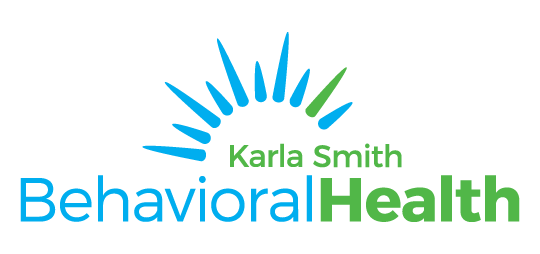LANGUAGE ABOUT MENTAL ILLNESS
by TOM SMITH
It happened again the other night. I was the guest speaker at a dinner meeting for a group who wanted me to talk about mental illness. After the dinner and talk a gentleman asked me about a friend of his who was dealing with PTSD. He wanted to help his friend but didn’t know how to do it. He mentioned that his friend was “wacko” at times. He was genuinely concerned, so I didn’t say anything about the “wacko” reference but it brought up familiar feelings and thoughts about how we often think and speak about people who struggle with the behaviors that regularly accompany a mental illness.
Those terms: wacko, nut case, crazy, out of her mind, looney, weirdo, etc. now mean more to me than they once did. Previously they were mildly offensive but since Karla, my daughter, was diagnosed with bipolar disorder and some of her behavior was unusual and she became the subject of those derogatory words, I not only take those terms more personally but I understand them more clearly. Though often used in flippant and casual conversation, these terms reflect a misinformed and prejudicial judgment that misrepresents a mental health condition and feeds the stigma that often accompanies these conditions.
Mental illness is an illness, not a character defect. That message, in and of itself, is a major theme of a more refined awareness and a deeper level of education about mental illness. And there are even other terms to describe the generic meaning of mental illness. For example, since a mental illness refers to a breakdown of the mind, and the mind is an activity of the brain, most mental illnesses are actually rooted in one form of a brain disorder.
Thinking of a mental illness as a brain disorder locates the core of the problem in some malfunction of the brain itself. As the most complex organ in our body it is not surprising that something can go wrong with how the brain functions. The problem is that the symptoms of this brain failure are expressed in exaggerated behavior – depression, hyperactivity, hallucinations, anxiety, paranoia, etc. Another part of the problem is that there is no reliable test for these disorders, no blood analysis, CAT scan, MRI, or thermometer as there is with most other physical illnesses. Mental illnesses are diagnosed by analyzing behavior, a somewhat reliable but not always accurate process.
A diagnosis of a mental illness in a family is scary, as it was with us. We usually don’t really know what it is, how it begins, what to expect, or how to treat it. A diagnosis of cancer in a family is scary too, but we know enough about what it is and the chemo, radiation, and medication that often follows the diagnosis. But with a brain disorder all of those components of treatment and possible recovery are more mysterious, and lead to misrepresentations, sometimes ridicule, abnormal behavior, and damaging language, like “wacko”.
The problem with this language is that it demeans the person and accuses them of some kind of unacceptable or disruptive behavior. It implies that the person chooses the behavior and therefore is blameworthy. When Karla was depressed or manic, I initially felt she wasn’t trying hard enough to be more “normal”. I was frustrated and mad, mixed in with embarrassment for her and us, unable to believe that my previously mature enough, balanced enough teenager had become so unbalanced a few years later to be labeled bipolar. Accepting that reality was a painful adjustment for her and us.
Hearing people refer to these loved ones as weirdo, nuts, crazy, or wacko is similar to derogatory and unacceptable language towards other racial, ethnic, or religious groups. Many of those insulting words and terms are socially banned, even inflammatory and legally outlawed as hate speech. But the comparable name-calling and prejudicial terms regarding mental health are still common and acceptable. But they too hurt and hinder.
Are these abusive terms toward people with a mental illness on par with the banned terms related to ethnic, racial, or religious groups or individuals? Yes, they are. Our collective awareness of their insulting and degrading message is not as developed as some of the other categories, but they are as real and damaging as the others. From elementary school through adulthood, these verbal expressions of casual ignorance and biting attacks contribute to the extensive bullying and societal neglect and dismissal of people with a mental illness. That bullying sometimes has severe consequences as we hear all too frequently in our suicide griever support group.
This discussion, and the deep feelings it generates, needs further development, education and public airing. For example, to what extent is a person with a mental illness personally responsible for the behavior that the brain disorder generates? Where is the line drawn between “it’s their fault” and “they have no control over their behavior”? Good questions our society needs to ask publicly and often.
But while we make those distinctions, it is paramount to stop the name-calling and the prejudicial language often used in serious and casual conversation.
If you have comments or questions about these columns, please email Tom Smith at tom.smith@karlasmithbehavioralhealth.org.
To learn more about the services of Karla Smith Behavioral Health go to www.karlasmithbehavioralhealth.org.
